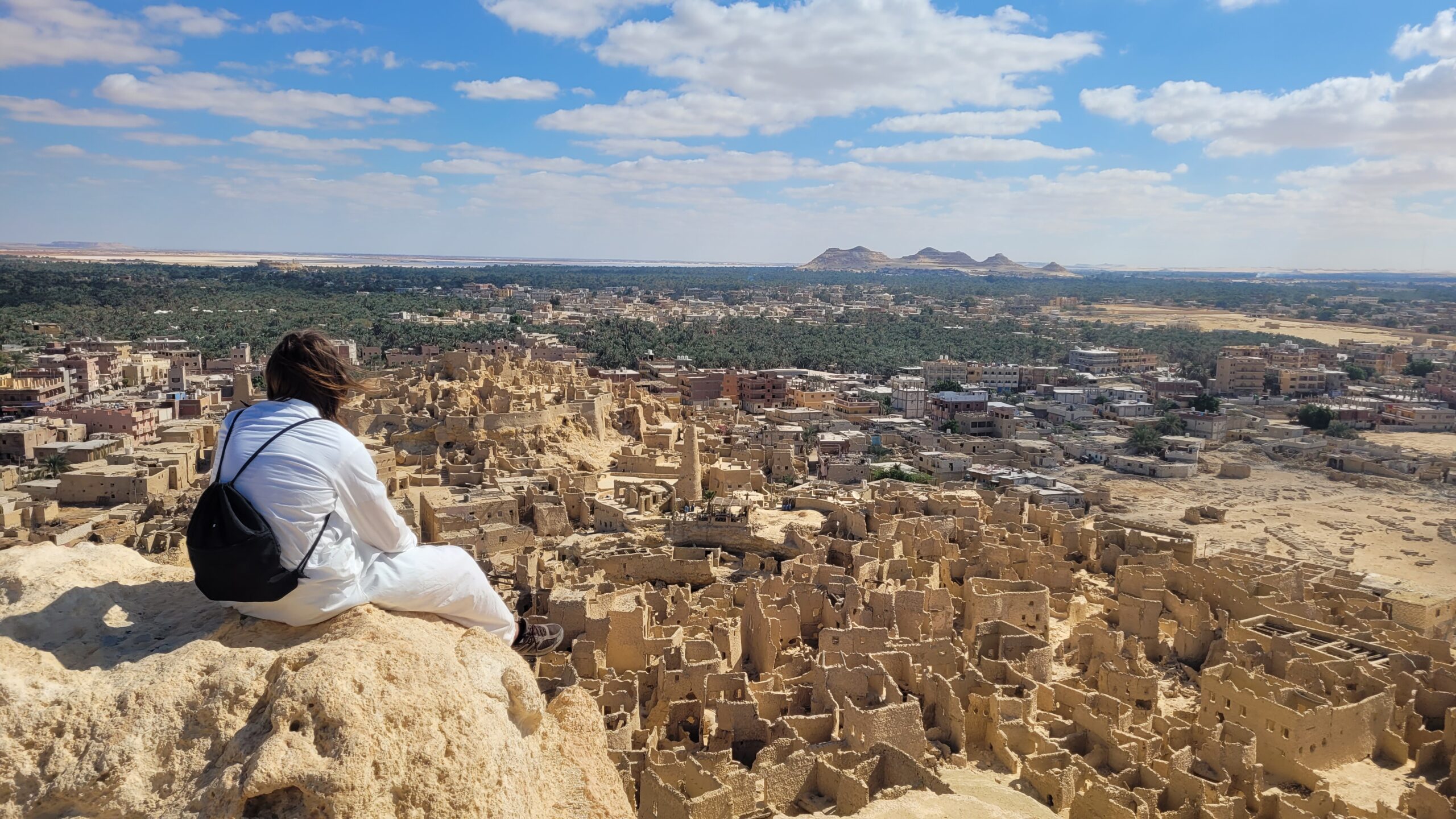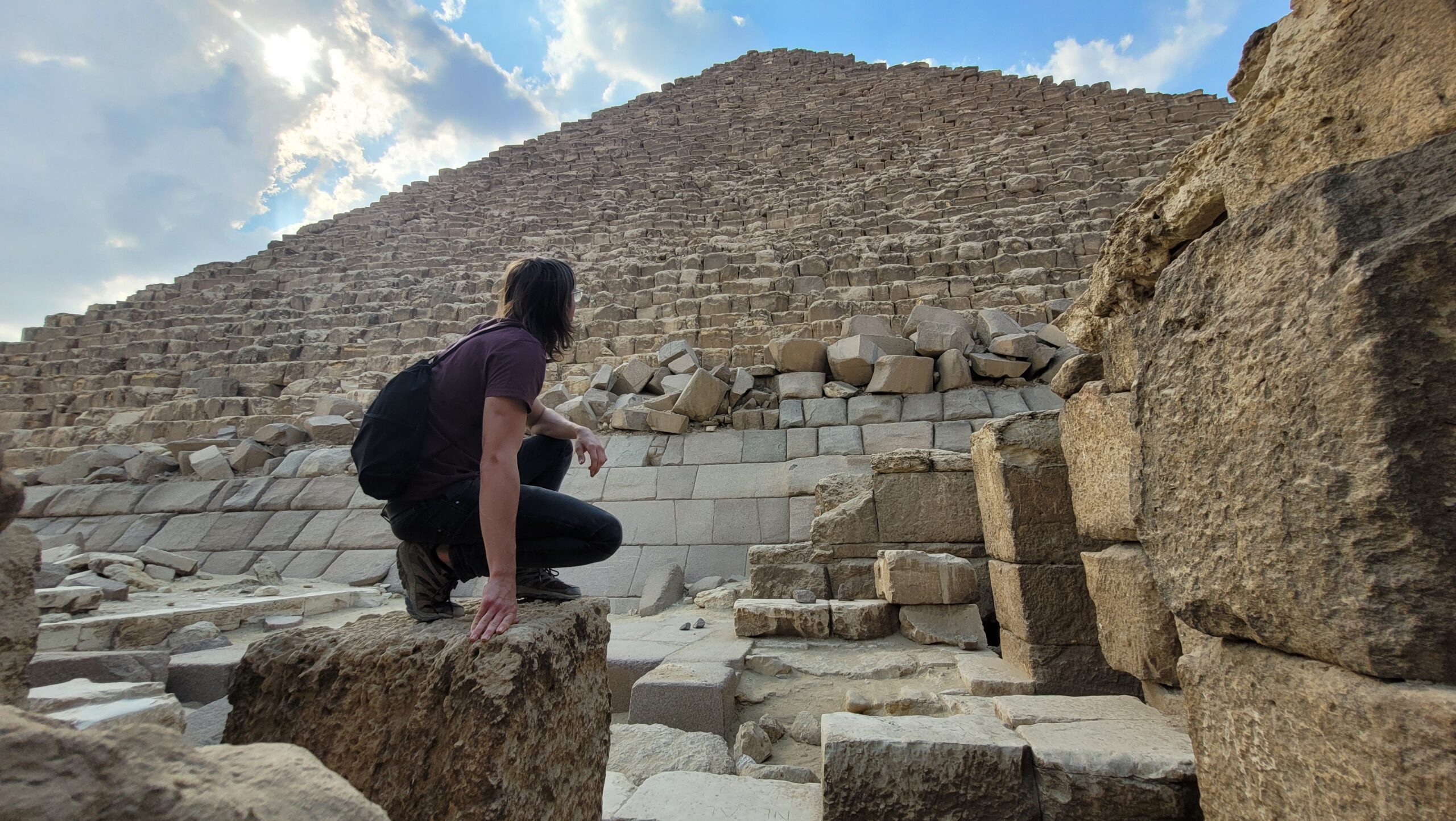Egypt
Why visit Egypt?
Egypt is probably the most well-known destination in Africa. Who hasn’t heard of the world-famous pyramids or the Sphinx? And while those sites are absolutely worth seeing, they’re just the beginning. There’s so much more to this country than most people realize.
Egypt has one of the longest and most fascinating histories in the world. The tombs around Luxor are thousands of years old and still incredibly well preserved. From the chaos of Cairo’s streets to the calm, scenic beauty of Aswan and the remote, peaceful vibe of the Siwa Oasis, Egypt has a bit of everything.
While you could simply take a cruise down the Nile river you’ll find a much deeper and more rewarding experience waiting for you outside the country’s hotspots.
Quick Country Facts

Capital
Cairo
Currency
Egyptian Pound (EGP)
1€ = 58EGP
Population
114,5 Million
Languages
Egyptian Arabic, Sa'idi Arabic
Best time to visit
All year around
Food
Koshari -National dish consisting ricem lentils, macaroni & chickpeas
Shawarma - It's everywhere
Hawawshi- Stuffed Meatpies
Safety
Up to this day, Egypt still hasn’t reached the number of visitors it had before the Arab Spring. The country never fully recovered from that chapter, and just like ten years ago, many travelers are still hesitant when it comes to safety. The country has had its share of political upheaval over the last decade, but for most travelers today, Egypt is generally safe.
Places like Cairo, Luxor, Aswan, and the Red Sea resorts see thousands of tourists every day, and security is taken seriously. There’s a noticeable police and military presence around major sites and transport hubs, which might feel intense at first but is mostly there as a precaution. It’s part of everyday life in Egypt, and locals are used to it.
That said Egypt has been suffering from a struggling economy in recent years and people find their ways to make money of tourists: Scams or overcharging are fairly common in tourist-heavy areas. Pickpocketing isn’t a huge issue, but some street hustling and overly “helpful” guides can be annoying if you’re not prepared.
For a full analysis you can read my Post Is Egypt Safe
Before you go
Visa
Visa on Arrival / E-Visa for EU, UK and US citizens, as well as latin american and some asian countries. The visa fee is 25$.
Egypt has a decent network of buses connecting most major cities and towns, and tickets are usually very affordable. For example, an overnight bus from Siwa to Cairo costs around 25€, and you can find tickets from Luxor to Cairo starting at just 9€.
There’s also a train line running from Alexandria all the way down to Aswan. However, ticket prices for foreigners are often more than five times higher than what locals pay. Because of that, it’s usually cheaper and more practical to take a domestic flight or an overnight bus for longer journeys.
Taxis are easy to find in most cities. As with many North African countries, they don’t use meters, so make sure to agree on a price before getting in to avoid surprises.
Transport
Difficulty
Thanks to its solid infrastructure and transportation network, Egypt is relatively easy to travel through. Apps like Booking.com, Airbnb, GetYourGuide, and Bookaway work smoothly, and aside from the occasional scam or pushy seller, you’re unlikely to face major challenges.
Egypt is well connected to Europe, the Middle East, and other parts of Africa, making it an accessible destination for most travelers.
✈️ Arrival by Air
Egypt has several international airports, with Cairo being the main entry point for most travelers:
Cairo International Airport (CAI) – The busiest airport in the country, with regular flights from Europe, the Gulf, and many African capitals. Most international travelers land here first.
Hurghada International Airport (HRG) – Popular with beach travelers headed to the Red Sea resorts.
Sharm El-Sheikh International Airport (SSH) – Another key hub for holidaymakers, especially those coming for diving or beach trips in South Sinai.
Luxor and Aswan Airports – Smaller but useful if you’re flying in from within Egypt or a few regional hubs.
⛴️ Arrival by Sea
Sea travel to Egypt isn’t very common, but there are a few options:
Ferries run from Aqaba (Jordan) to Nuweiba (Sinai Peninsula), mostly used by overland travelers coming from the Middle East.
Cruise ships occasionally stop at ports like Alexandria or Port Said, but these are geared more toward package tourists.
🚗 Arrival by Land
Israel & Palestine – The land border at Taba (near Eilat) is open and allows entry into the Sinai Peninsula.
Sudan – The land border is open at Wadi Halfa. Going into Sudan from Egypt takes up to 48 hours and getting into Egypt even longer. Bring a lot of time.
Libya – All land crossings between Egypt and Libya are closed to tourists.
Getting in
Budget
Egypt is an affordable travel destination, especially for backpackers and budget-minded travelers. While tourist hotspots like the Giza Plateau or Luxor Temple can come with higher prices, it’s still very possible to explore the country on a low budget.
💸 Accommodation
Egypt offers a wide range of budget stays. Dorm beds start from around 5–7€, and basic private rooms can cost between 10–25€, depending on the city. You’ll find plenty of options on Booking.com or Airbnb.
🍽️ Food & Transportation
Food is very affordable, especially if you stick to local spots. A simple meal like koshary or falafel sandwich will cost 1–2€, and a sit-down meal in a basic restaurant rarely goes over 5€.
Transportation is also cheap. Intercity buses are very reasonably priced.
💶 Estimated Daily Budget
If you stay in budget accommodation, eat local food, and use public transport, you can easily travel Egypt on 25€ per day.
All Posts

How to visit Aswan in 2025

How To Visit Siwa in 2025 – An Ultimate Guide

Is Egypt Safe To Travel In 2025
